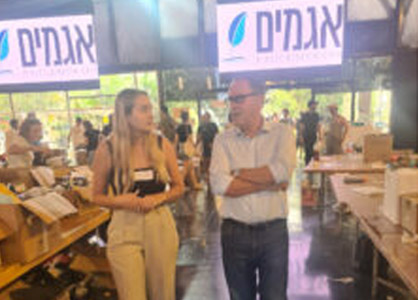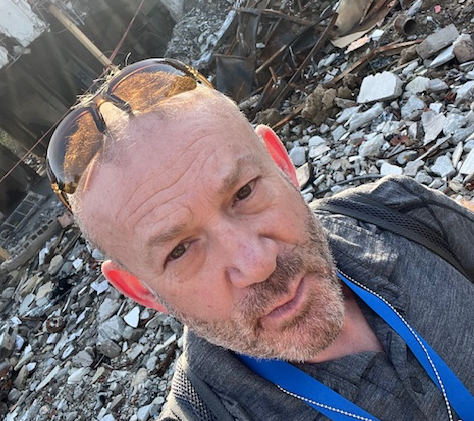
Landlocked No More: Desalination Goes Inland
Landlocked No More: Desalination Goes Inland
January 4, 2012
In an article in Ecomagination, writer Brian Clark Howard explains how researchers at the Zuckerberg Institute for Water Research at BGU’s Jacob Blaustein Institutes for Desert Research are advancing the field of desalination, a process that converts salt water into drinkable freshwater.
For years, desalination has been seen as an answer to the world’s growing water woes, but the process has historically been expensive, highly energy intensive, and has resulted in salty waste that has sometimes caused problems.
What’s more, desalination plants are traditionally located on the coasts, making it difficult to move water inland — especially for landlocked countries like Jordan. Under the direction of BGU expert desalination scientist Dr. Jack Gilron, Jordanian Ph.D. student Amer Sweity is part of a team focused on perfecting the process of desalination.
“It’s complicated for an Arab to come to Israel to study. Some friends cut you off. But by helping serve the environment Research, we can try to bridge the gap. Water is crucial for all of us,” says Sweity.
Dr. Gilron — an expert on inland desalination — and his team have built pilot plants on a semi-industrial scale to test the feasibility of a new inland desalination system. This technology has resulted in less salty brine pollutant to store or process.
The salty brine that is left over has historically presented a problem for desalination experts around the world, however Gilron’s team has developed a way to safely store and even use the salt concentrate.
Through the use of reverse osmosis, the Zuckerberg Institute has successfully transformed 97 to 98 percent of the saltwater into useable freshwater, compared to the 80 percent seen in past desalination processes.
Read the full article on Ecomagination >>
ABOUT AMERICANS FOR BEN-GURION UNIVERSITY
By supporting a world-class academic institution that not only nurtures the Negev, but also shares its expertise locally and globally, Americans for Ben-Gurion University engages a community of Americans who are committed to improving the world. David Ben-Gurion envisioned that Israel’s future would be forged in the Negev. The cutting-edge research carried out at Ben-Gurion University drives that vision by sustaining a desert Silicon Valley, with the “Stanford of the Negev” at its center. The Americans for Ben-Gurion University movement supports a 21st century unifying vision for Israel by rallying around BGU’s remarkable work and role as an apolitical beacon of light in the Negev desert.
About Ben-Gurion University of the Negev
Ben-Gurion University of the Negev embraces the endless potential we have as individuals and as a commonality to adapt and to thrive in changing environments. Inspired by our location in the desert, we aim to discover, to create, and to develop solutions to dynamic challenges, to pose questions that have yet to be asked, and to push beyond the boundaries of the commonly accepted and possible.
We are proud to be a central force for inclusion, diversity and innovation in Israel, and we strive to extend the Negev’s potential and our entrepreneurial spirit throughout the world. For example, the multi-disciplinary School for Sustainability and Climate Change at BGU leverages over 50 years of expertise on living and thriving in the desert into scalable solutions for people everywhere.
BGU at a glance:
20,000 students | 800 senior faculty | 3 campuses | 6 faculties: humanities & social sciences, health sciences, engineering sciences, natural sciences, business & management, and desert research.
For all press inquiries, please contact:
James Fattal, J Cubed Communications
516.289.1496



